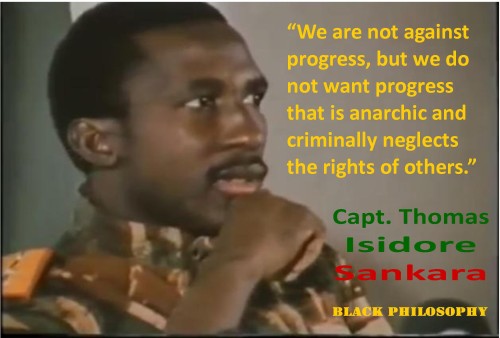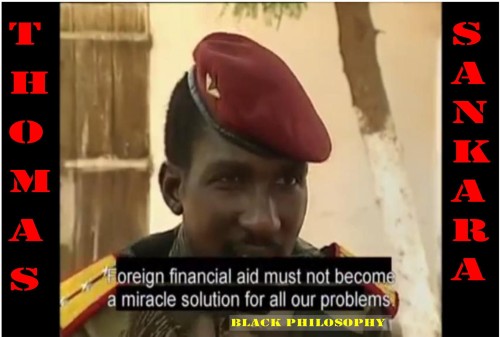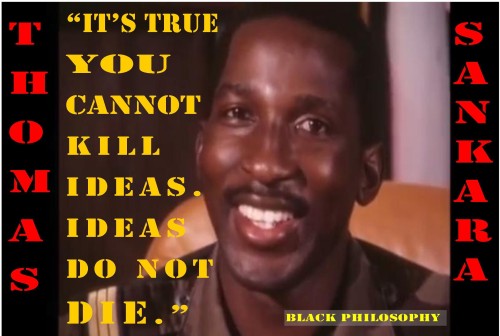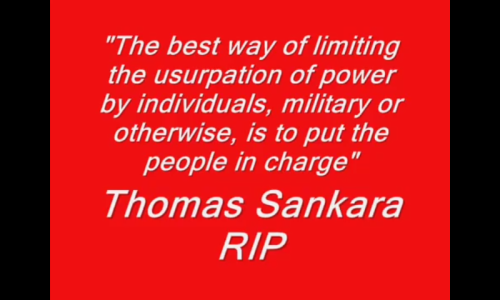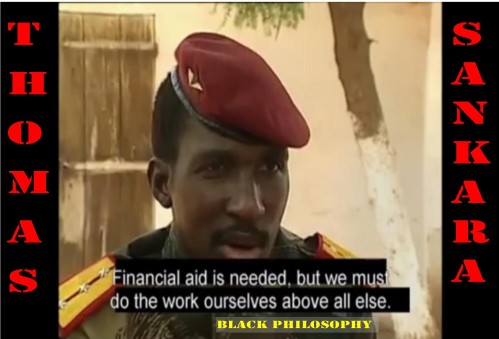Last year, I signed a petition calling for the remains of Thomas Sankara, popularly known as The Upright Man and the former leader of Burkina Faso, anti-imperialist activist and revolutionary, to be exhumed. Now, his remains or what are believed to be his remains are in the process of been exhumed.
I am not sure if the petition I signed had anything to do with it or if his widow and her family’s calls for his remains to be exhumed are the catalyst. It is immaterial.
The good news is that an injustice can be corrected and the late revolutionary, feminist, anti-imperialist activist and one of the best leaders to emerge from Africa can receive a dignified burial befitting a legend of his stature.
It is more important that this is done not only to provide closure for the family but for Thomas Sankara’s story to be told in full.
The truth is something we all want to hear. We want to know who killed him. We want to know about the alleged involvement of external imperialist and neo-colonialist forces. We want those who took him out to be brought to justice.
The exhumation of Sankara’s remains reopens a chapter of African history that those who assassinated him hoped would never be revisited.
His assassination echoes the murder of other great African leaders like Patrice Lumumba, Samora Machel, Steve Biko, Chris Hani, Herbert Chitepo, Dr Samuel Tichafa Parirenyatwa, Malcolm X, Fred Hampton, Khalid Abdul Muhammad and many other revolutionaries too many to mention here.
Revisiting Sankara’s legacy will provide us with the opportunity to understand the modus operandi of those forces that trot the globe preaching democracy on the world stage, but use proxy wars and propaganda to silence and remove leaders who are critical of their unorthodox methods and install puppet regimes sympathetic to their interests.
The assassination of African leaders who have upheld the interests of their people’s and selflessly defended their sovereignty is beyond tragic.
It has arrested the development of the continent and in many cases set Africa back decades, and provided a platform for corrupt dictators and despots to flourish with the support of many Western nations.
The support of these despots has been a vain attempt to maintain the cultural, socio economic and political hegemony of the more powerful nations over the weaker nations and maintain their stranglehold on the resources of Africa for their exclusive use.
These are the ills Sankara diagnosed through a Marxist critique and offered remedies to cure Africa of its ailments. He reached out to and spoke on behalf of all the oppressed and exploited people’s of the world who refused to accept the economic subjugation of classified societies and their consequences.
He condemned ecological devastation, African genocides and wars, racism, wars of conquest and plunder brought on by the workings of capitalism. He understood that those conditions were unnatural but a by-product of the modern imperialist order.
For 28 years, what happened on that fateful day in October 1987 has been shrouded in mystery. Now, the opportunity to find out the truth has become a reality.
Nowhere is this need to know greater than within Burkina Faso. Hundreds of Burkinabe went to the graveyard where the exhumation was taking place in Ouagadougou. However, the security forces kept them out.
Blaise Compaore who is largely believed to have been instrumental in the assassination of Sankara, has always denied involvement but while he was in office, the courts denied a request by the family for Sankara’s exhumation.
His ousting during the riots in October last year paved the way for this historic occasion.
The assassination of Sankara made him a martyr not only in Burkina Faso, but across Africa and internationally. His star continues to rise and many people are embracing his ideas, reinforcing his belief that, “You cannot kill ideas. Ideas do not die”.
His most popular quote, “While revolutionaries as individuals can be murdered, you cannot kill ideas”, has proved that the assassination of Sankara did not kill his ideas, and that they continue to influence new generations 28 years later.
His mission to confront imperialism, colonialism, social inequality, socioeconomic and political transformation and the subjugation of women has not diminished with time.
More and more movements are sprouting internationally, continuing the work Sankara started and he has become a figurehead of many of these social movements.
The riots last year that led to the ousting of Compaore were attributed to the lingering influence of Sankara.
The spirit of Sankara lives on in the downtrodden, oppressed and exploited people’s of the world. His calls for a more humane world where people live with dignity resonates with most people: this is why Sankara’s ideas continue to inspire new and old followers alike.
Books like We Are Heirs of the World’s Revolutions, Women’s Liberation and the African Freedom Struggle, and Thomas Sankara Speaks which are books that contain Sankara’s speeches are powerful weapons to those fighting oppression and exploitation and trying to gain a better understanding of the man and what he represented.
The books mentioned above are important resources that make Sankara’s ideas more accessible but most importantly, they illustrate what he stood for as well as show that he was an excellent theoretician who could break down complex ideas and reproduce them in a form palatable to the layman.
They reveal his accomplishment as an orator but also set out his plans for Burkina Faso and his achievements within the four years he transformed his country from a nation dependent on France to a self reliant people.
His growing popularity is a direct result of his selfless task to speak on behalf of “‘the great disinherited of the world’, those who belong to the world so ironically christened the Third World. And to state, though I may not succeed in making them understood, the reasons for our revolt.”
Probably Sankara’s most endearing quality was his total trust in the people providing answers to their own challenges and transforming their own society and governing it.
His extraordinary confidence in the revolutionary capacity of human beings set him apart from all other leaders and politicians who tend to preach that the role of governance and maintaining order is the sacred duty of only the enlightened in society. That means only the “elite”!
He played a role as a leader of African people and as the unofficial spokesperson for the oppressed, and exploited in the semi colonial world, plus he provided leadership to working people in the imperialist world: it is this internationalist appeal and perspective of his that many people identify with and embrace.
Many have no idea who he is. But once they see his videos or read his books, they are converted almost instantaneously, attracted by Sankara’s charisma, confidence and honesty.
Sankara’s legacy has many facets I cannot cover here. In principle, his life’s work provides us with the blueprint of what an African leader can, could and should be.
His honesty and integrity and political will are qualities we should seek in those who we elect to power.
In addition, the way he lived his life with compassion, empathy, in reverence of nature, cognisant of the struggles of women and all oppressed people should inspire us to live a more meaningful life with purpose, and think and act like those mad men who dare to dream and change the world.
The Upright Man, Thomas Isidore Noel Sankara, gave us hope when we had all but lost it. He gave us the confidence to believe that we can create a world built on different economic and social foundations and not by technocrats, financial wizards or politicians.
He inspired us to acknowledge that we, ordinary human beings, can transform ourselves by becoming active, conscious forces, transforming our conditions in life.
Most importantly, the Burkinabe Revolution is a blueprint to freedom that he left to inspire us to dare to dream and change the world. It enlightened us and left us with many valuable lessons in the same way Sankara was inspired by those revolutions that came before him.
In his own words, he said we are “open to all the winds of the will of the people’s of the world and their revolutions, having also learned from some of their terrible failures that led to tragic violations of human rights. We wish to retain only the core of the purity from each revolution. This prevents us from becoming subservient to the realities of others”.
Like Sankara, “we are heirs of the world’s revolutions” and we too can learn from the “terrible failures that led to tragic violations of human rights” and the loss of The Upright Man’s life to prevent such mistakes from happening in the future.
Revisiting Sankara’s legacy is necessary to understand our potential as revolutionaries and our role in determining the future of a liberated Africa. No developed nation, no matter how benevolent, can provide us with solutions to develop our continent. Let the spirit and ideas of Sankara be our guide to the Promised Land.
Thomas Sankara was a soldier, not only in the literal sense, and even from beyond the grave, he continues to fight for justice and inspire a new generation of fearless warriors, soldiers and revolutionaries. As long as we are breathing, we will continue to uphold Sankara’s legacy and spread it internationally. Sankara Lives!

